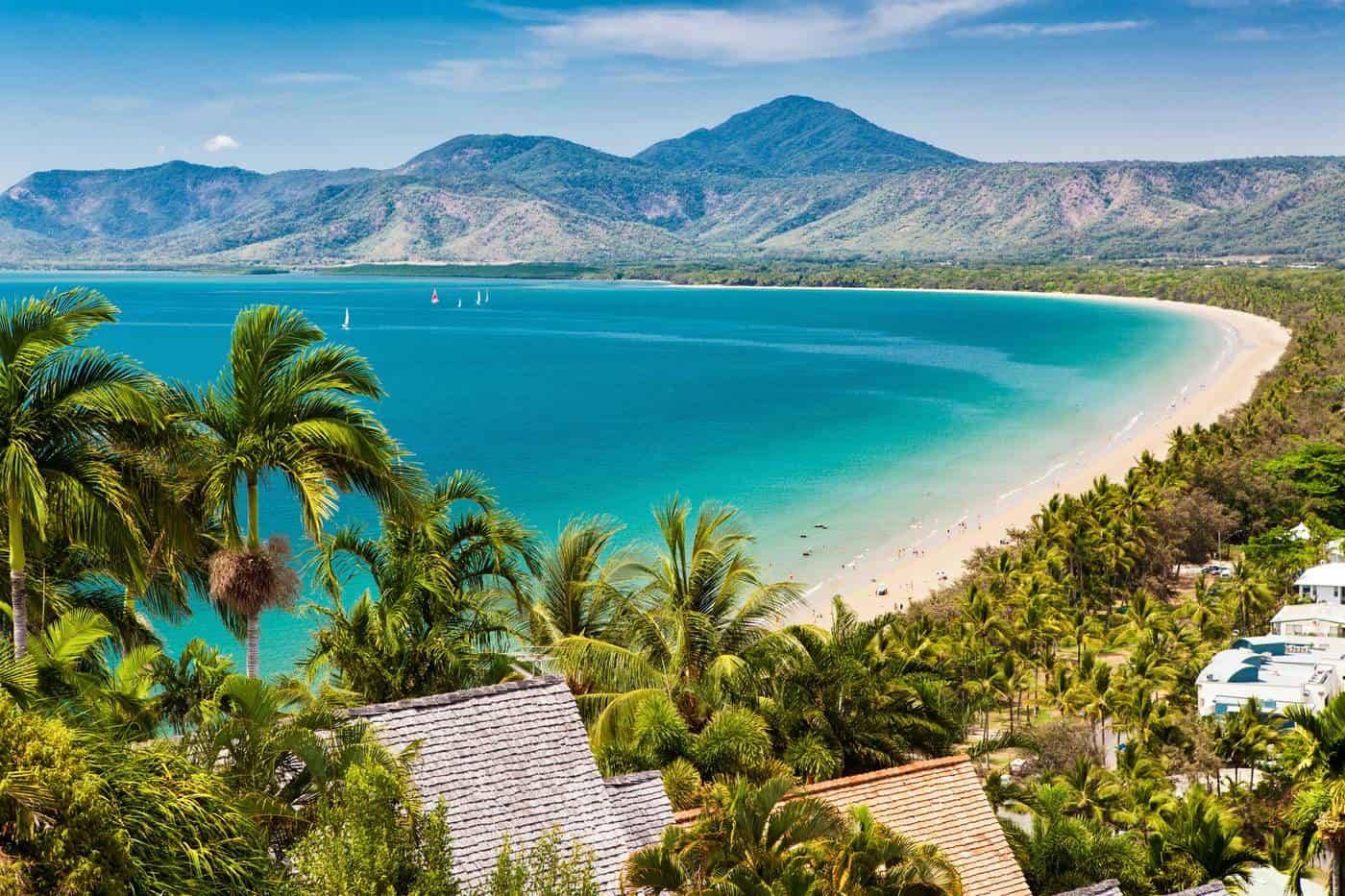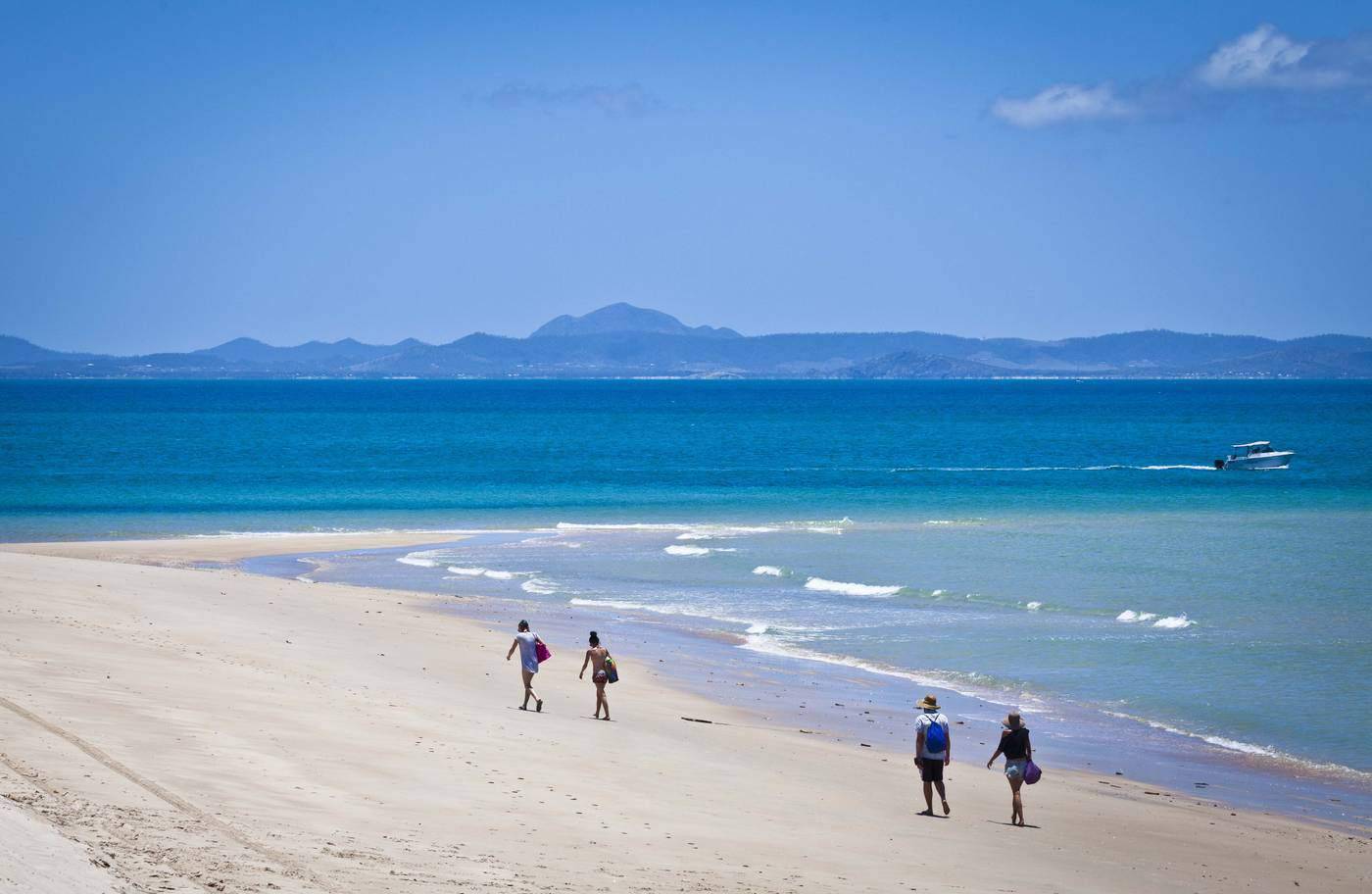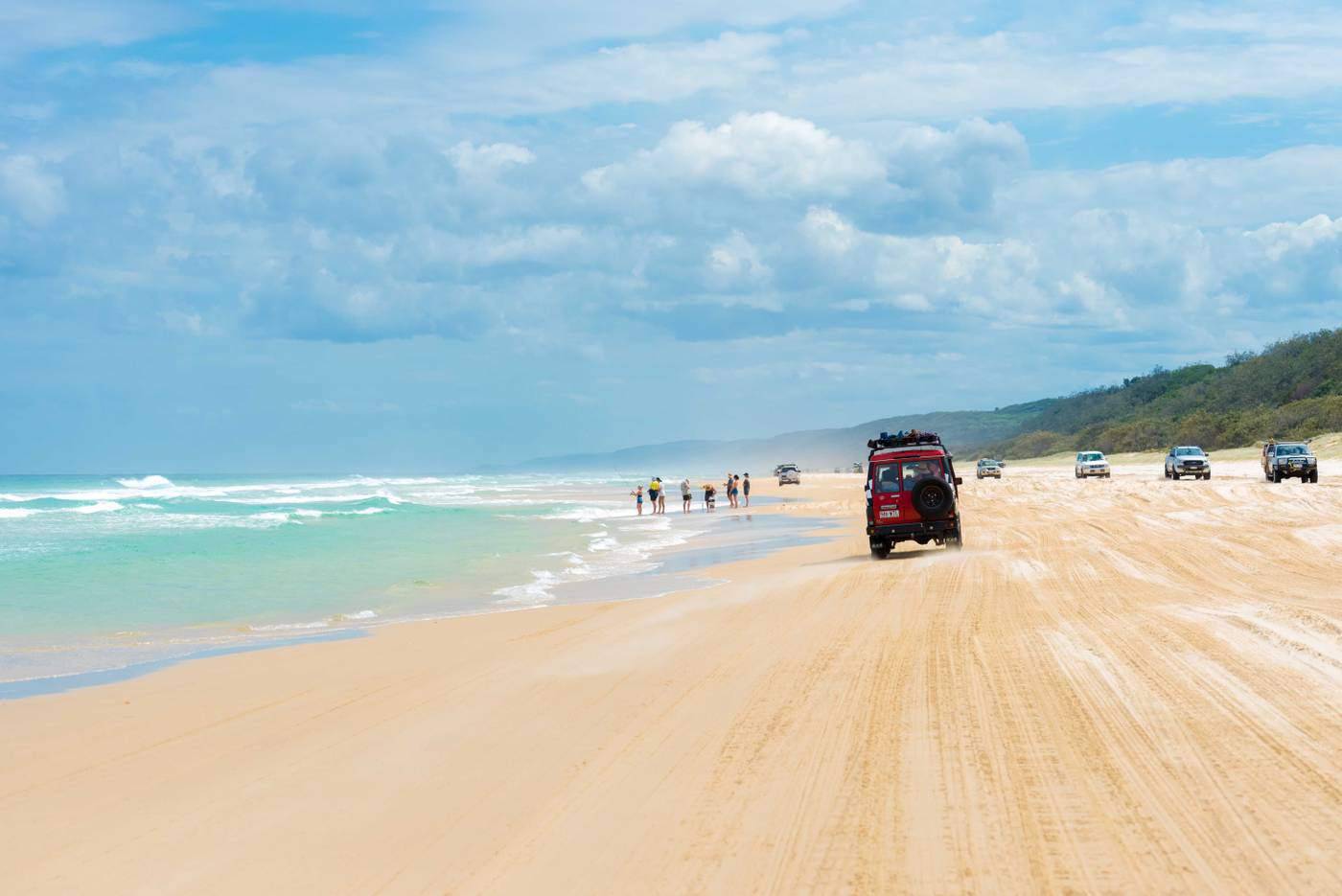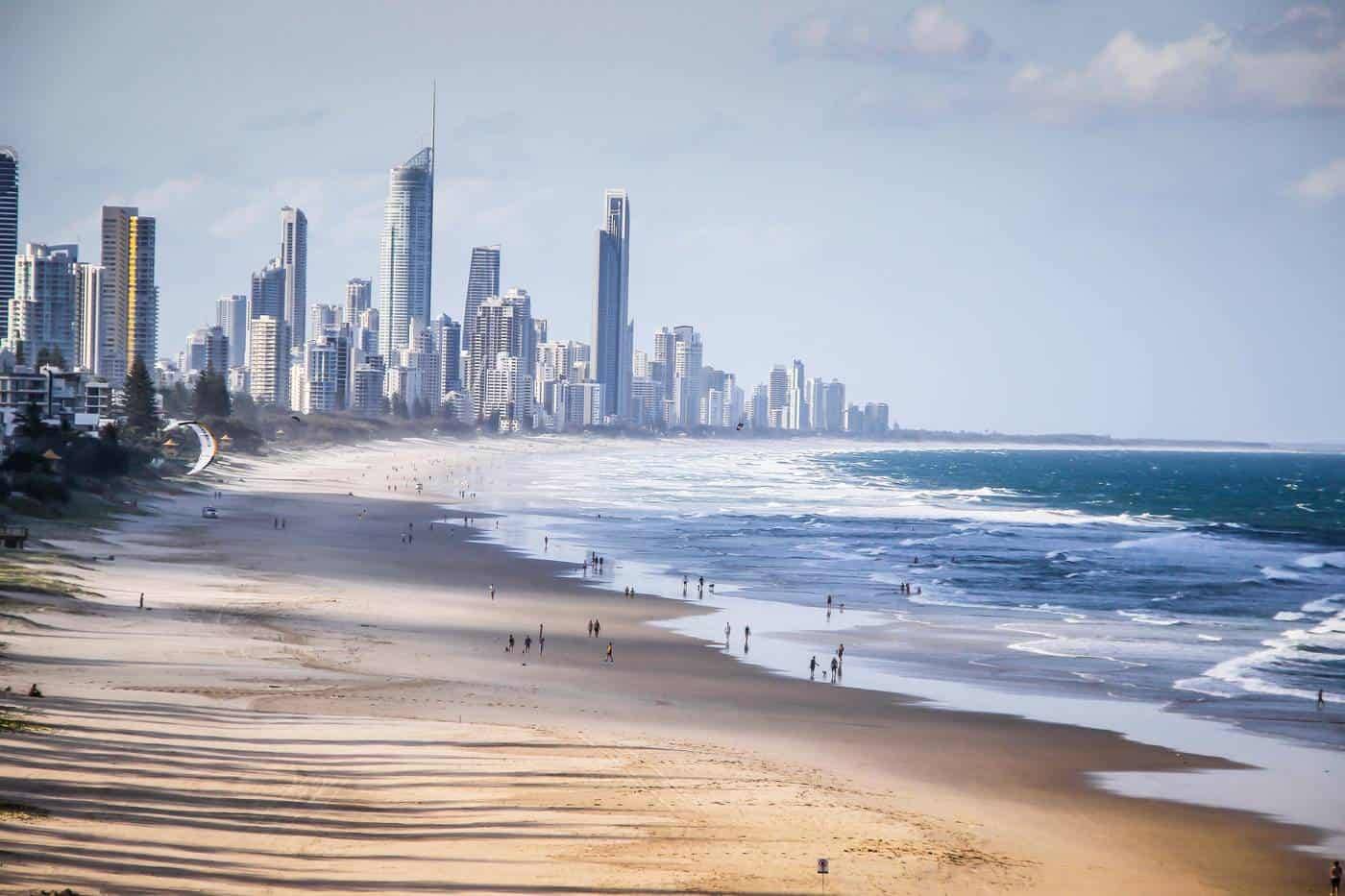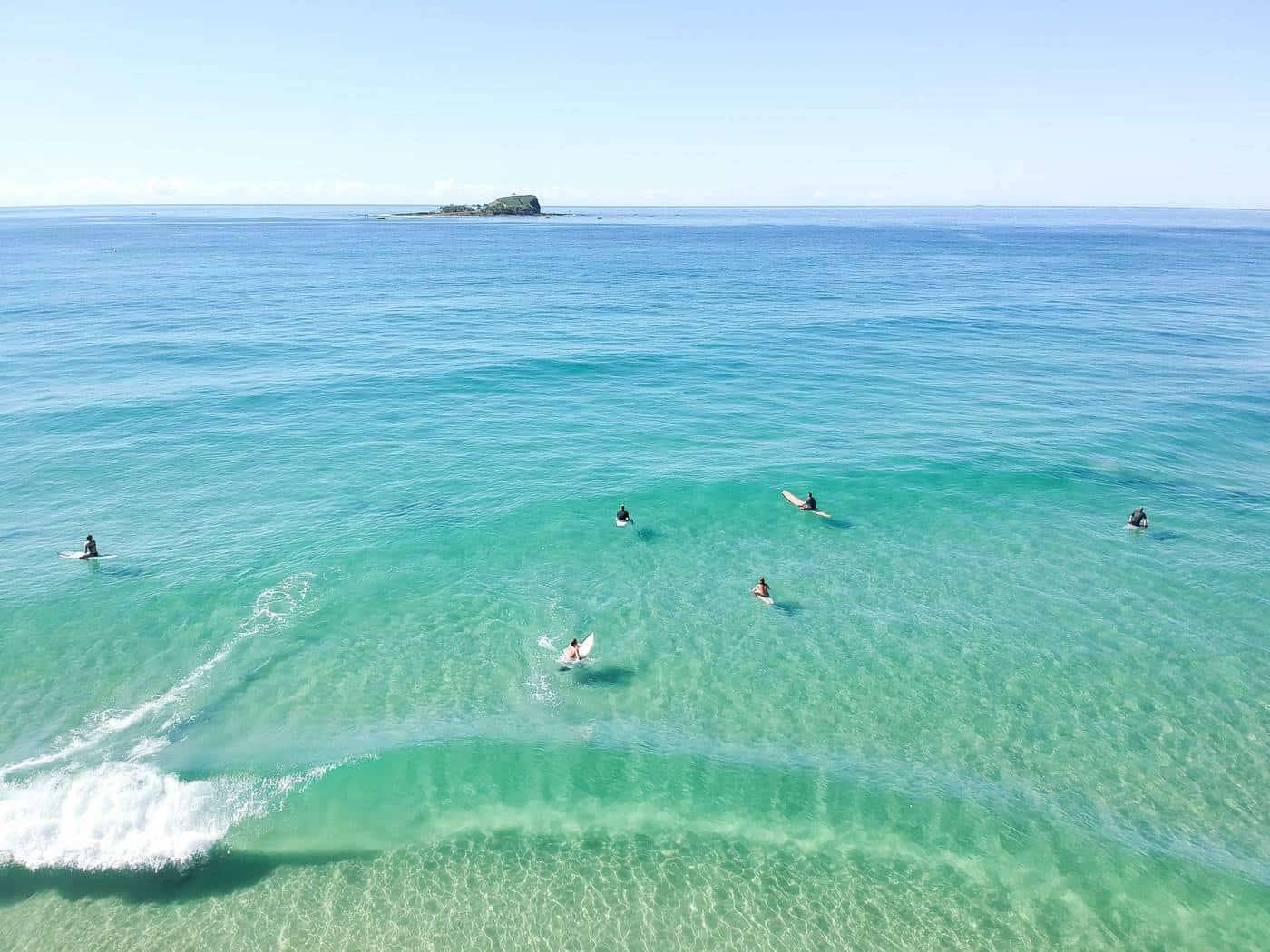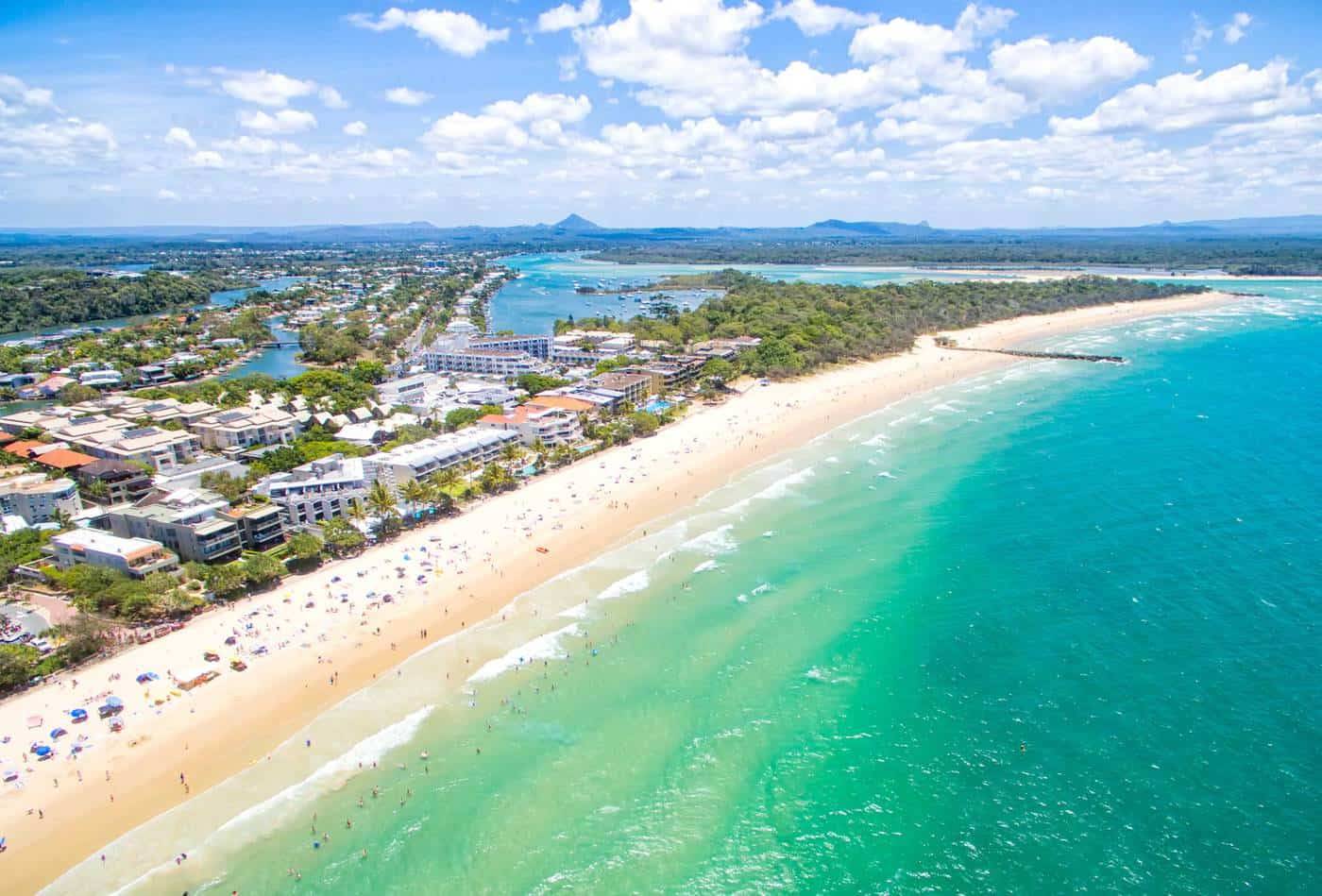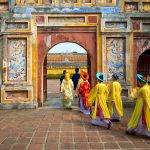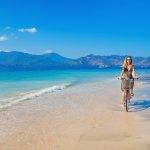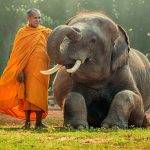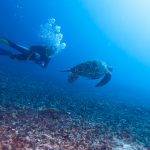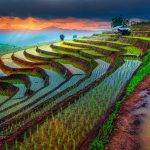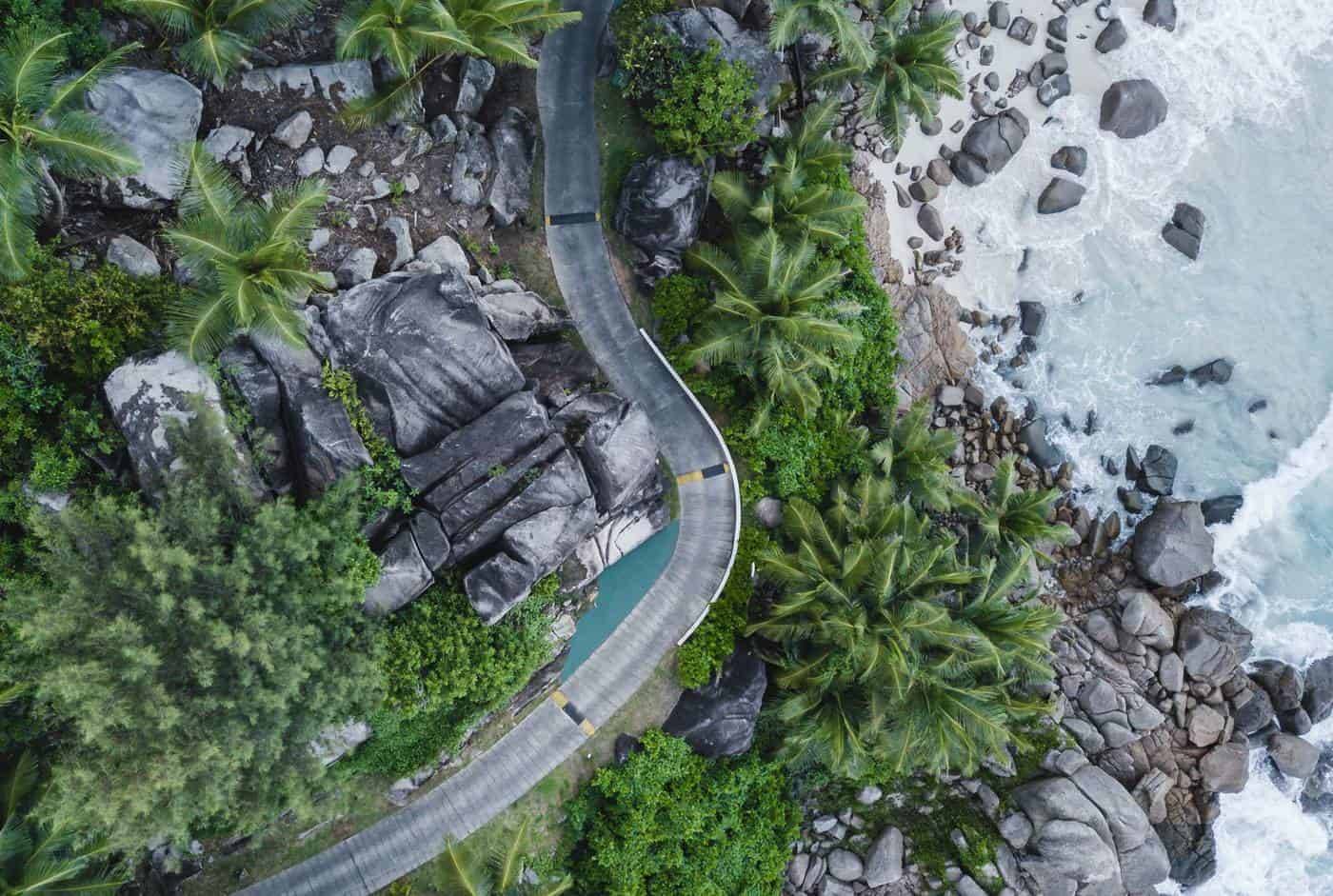
THE CASSOWARY COAST
The Cassowary Coast stretches almost 200 km from Cairns to the south towards Cardwell, alongside the Bruce Highway that meanders through mill towns, cane fields and exotic fruit farms. Surrounded by lush, verdant hills of the rainforest from the west, and looking out to the azure blue of the Coral Sea dotted with cays of the Great Barrier Reef, the travellers will likely drive off the road at every curve to take a photograph.
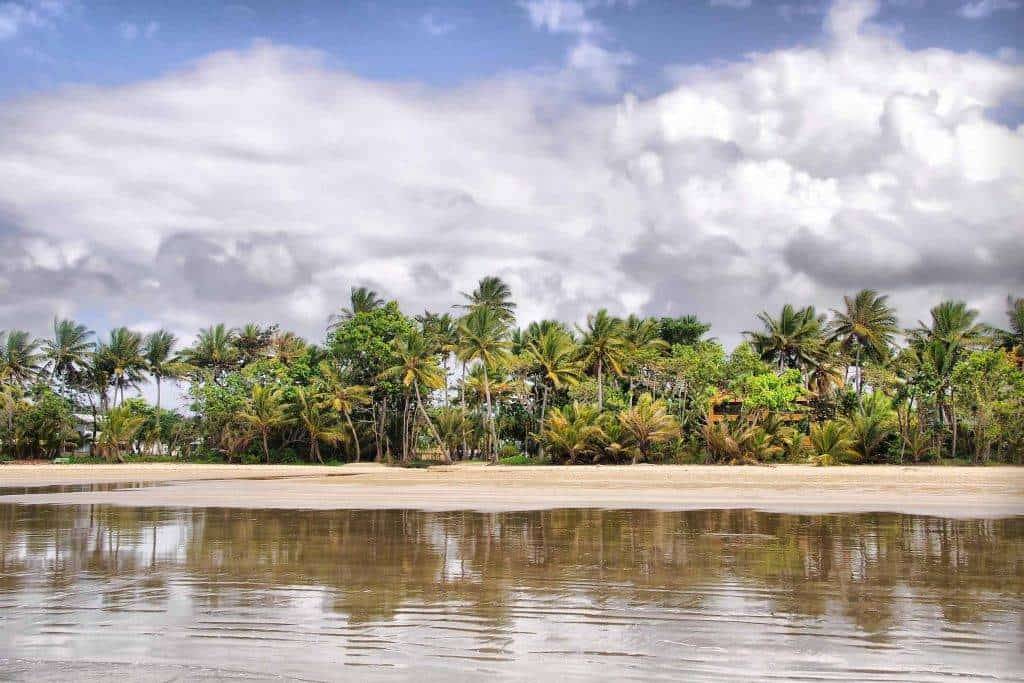
What really makes it a great destination is the fact that one can choose between the coast and its hinterland, or perhaps explore both. There is something to do for everyone.
For instance, the Wallaman Falls (Australia`s tallest single-drop waterfall) is worth stopping by, near Ingham – an old Italian town with important historical heritage, wonderful cuisine and food festivals. Lucinda leads to the eco-touristy Orpheus & Palm Islands while further North, Cardwell is the gateway to the wilderness of the Hinchinbrook Island – Australia`s largest island national park. And if you drive further North you will arrive at the celebrated Mission Beach – a gateway to Dunk Island.

WHAT TO DO IN CASSOWARY COAST (FOR NATURE LOVERS)
- Goldsborough Valley – Mulgrave River, excellent camping, fishing, canoeing, swimming, nice recreation and holiday spot
- Babinda Boulders – surrounded by lush rainforest, idyllic swimming hole & fast flowing tropical creeks in the park are perfect for a quick dip on a hot day, Devil`s Pool Walk, picnic spots
- Wooroonooran National Park – Queensland`s highest peaks (Mt Bartle Frere, 1657 m & Mt Bellenden Ker, 1582 m), Mt Bartle Frere can be climbed, but it requires a good level of fitness (10-12 hrs return), Walsh Pyramid, 922 m (good hiking), Josephine Falls
- Eubenangee Swamp Park – excellent crocodile spotting & the unique tree kangaroos
- Tully Gorge National Park – the wettest place in Australia, rainforest walks, impressive Tully Falls, Tully River (white-water rafting), Kareeya Hydro Power Station, Mamu Tropical Skywalk (built above the rainforest, great views), Paronella Park (Spanish-style structures & a big love story, botanical walk, tours, camping)
- Girringun National Park – part of the Wet Tropics World Heritage Area, the national park is a series of national parks, e.g. Wallaman Falls, Blencoe Falls, Mount Fox and Dalrymple Gap. Adventurers can explore the park for many days on the interconnected trails of the Wet Tropics Great Walk while hiking Girringun National Park, or take one of the fantastic short walks.
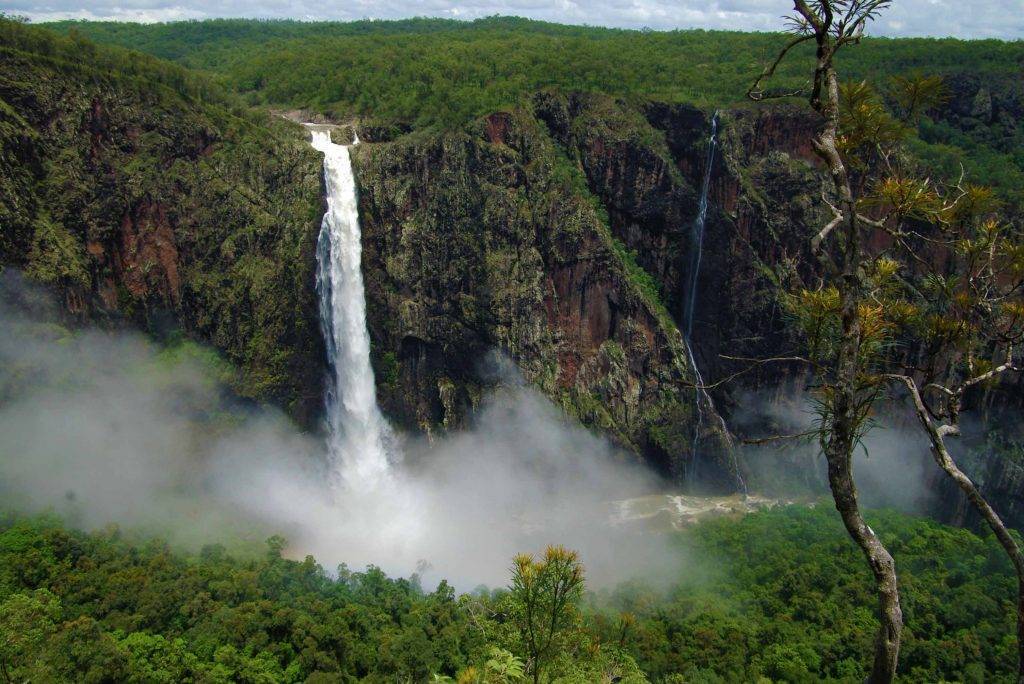
WHAT TO DO IN CASSOWARY COAST (FOR OCEAN LOVERS)
- Mission Beach – bounded by the Coral Sea it is a popular tourist destination with a gorgeous stretch of beaches (Wongaling Beach, Mission Beach, Bingil Bay, Brooks Beach, Carmoo, Bingil Bay and Garners Beach) and tropical national parks filled with exotic fauna and flora (cassowaries), Djiru National Park, Hull River National Park, banana plantations, The Big Cassowary, restaurants, cafes, wide range of accommodation, banana festival, cruises & tours
- Dunk Island – Great Barrier Reef, camping, trekking, birdlife spotting, snorkelling and scuba diving, Coconut Beach is one of the best
- Hinchinbrook Island – an uninhabited island filled with mere wilderness, it is the largest island national park in Australia with plenty to do if you don`t mind getting out of your comfort zone (Great Barrier Reef – diving for dugongs & turtles, spectacular hiking, camping)

ATHERTON TABLELAND
‘The Tablelands’ is a highland region in the hinterland between the Cassowary Coast and Cairns and a heaven for all nature lovers. The landscape comprises rainforest, wetlands and savanna – home to abundant birdlife and wildlife like tree kangaroos, cassowaries and wallabies.
The region is known by tourists for the Waterfalls Circuit, a 17-km driving loop that includes Barron River, Millaa Millaa Falls, where the forested setting is a favourite of photographers. The best way to explore The Tablelands is self-driving. There are many scenic drivers suitable for 2WD.

WHAT TO DO IN THE TABLELANDS
- Atherton – The Crystal Caves, Chinatown temple & museum (UNESCO), walking & mountain biking, coffee plantations
- Mareeba – old coffee town, tobacco, mango, sugar cane and coffee plantations, Mareeba Wetlands (birdlife), Tolga Scrub Rainforest, Granite Gorge
- Dambulla National Park – Lake Tinaroo (boating, fishing), Cathedral Fig Tree, Kauri Creek Rainforest (walking tracks), the forest scenic drive starts at Tinaroo Dam Spillway, horse-riding, hiking, camping at the lake
- Hypipamee National Park – the only high-altitude rainforest, crater lakes, creeks and waterfalls, awesome walking tracks and lookout
- Gadgarra National Park – Lake Barrine & Lake Eacham, eco-retreats, walking, camping, Curtain Fig Tree (heritage-listed tree, one of the largest trees in Australia)
- Best waterfalls – Ellinjaa Falls, Nandroya Falls and Tchupala Falls, Milla Milla Falls (swimming & photography)
- Barron River – white-water rafting, trekking, Barron Gorge, Barron Falls (bookings in Cairns)
- Koomboolooma National Park – Koombooloomba Dam, Murray Falls, camping, trekking
- Ravenshoe – Tully Falls, Souita Falls, Millstream Falls, Pepina Falls, Herberton mining township
- Misty Mountains Trail – 130 km network of short and long wilderness tracks & mountain bike trails through pristine, high-altitude rainforest with crystal clear creeks, waterfalls and panoramic view
- Waterfalls Circuit – a 17-km driving loop that begins near Millaa Millaa on the Palmerston Highway and the drive includes numerous picturesque waterfalls where the visitors can take a swim (a favourite amongst photographers)

SAFETY WARNINGS
There are several important things to note and remember when travelling in tropical Queensland.
Stingers – although the beaches and its clear shallows look inviting the signs around must be taken seriously. Stingers are almost transparent marine creatures with venomous tentacles, some of them deadly. From November through to April the stingers inhabit the seas of the northern Queensland
Cassowaries – the notorious Australian Cassowary seems a lovely bird. However, they are recorded as the world`s most dangerous birds! The large flyless bird (grows up to 2 m tall) can get very aggressive when frightened, and it would chase the victim forever. It can easily slice a person into two pieces with a single fatal kick as cassowary’s primary weapon is its dagger-like digit II claw.
Saltwater & Estuarine Crocodiles – from Fraser Island all the way up to the tropical North, both types of crocs inhabit the coastal waters. It might not be an everyday sight, but they are also not rare to spot. Always read the beach and creek signs!
Cyclones – the tropical coast of Queensland is threatened by seasonal cyclones (mostly between Jan-March)
Sunburn – the major danger for most of the foreigners is the Queensland tropical sun. Australia is well-known for its extreme UV indexes and blistering sun. Make sure you use enough sunscreen throughout a day and wear a hat at all times!

WHEN TO TRAVEL
Hence above, the best time to visit Tropical Queensland is between May-October.
NOTE when planning your trip, check out the Australian school holidays as the major tourist locations tend to get very busy
HOW TO GET THERE
Fly to Cairns from any Australian airport, e.g. Sydney, Melbourne, Perth, Brisbane
Rent a vehicle to be able to move around independently
For all flights visit www.momondo.com or www.skyscaner.com

